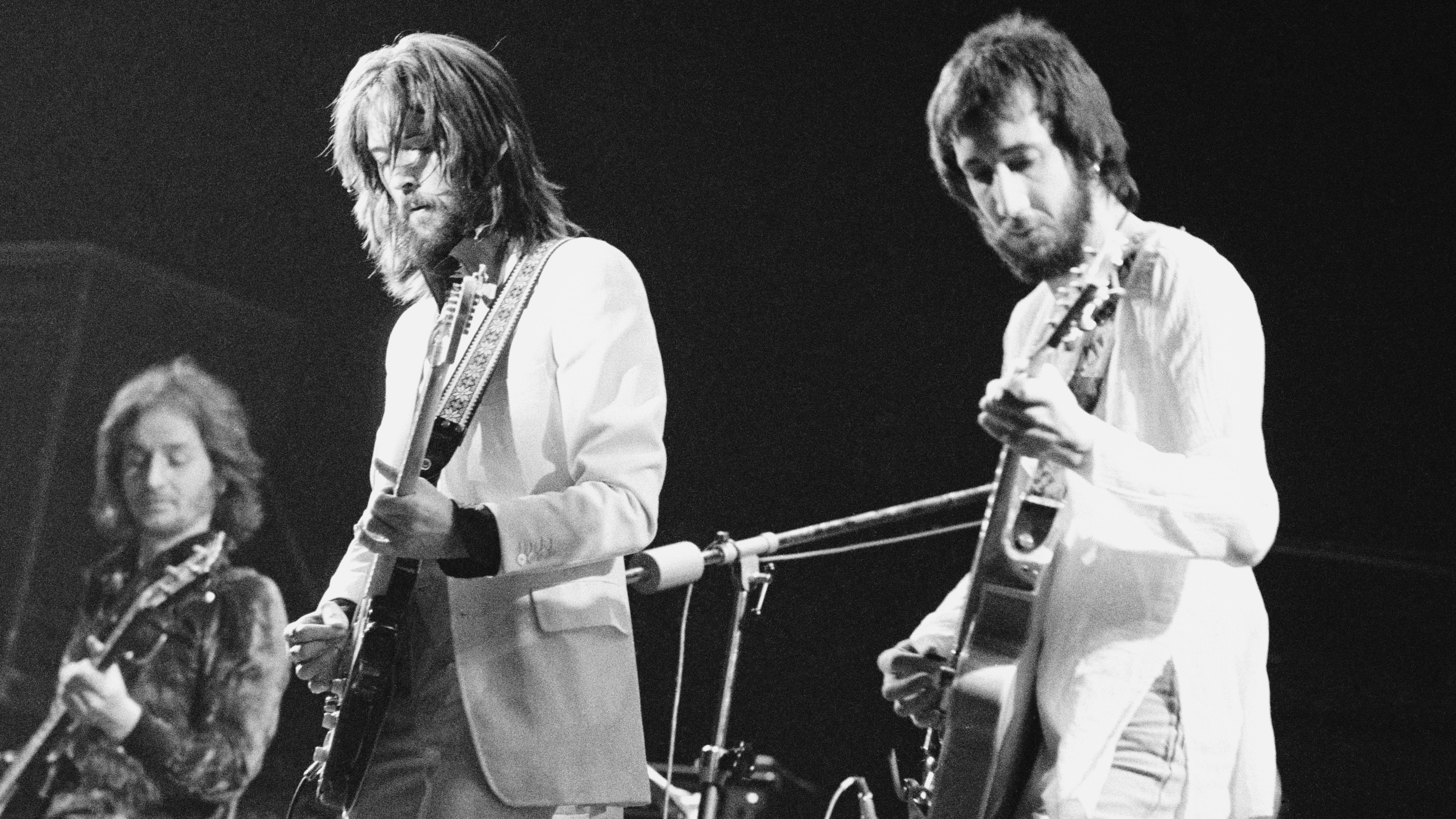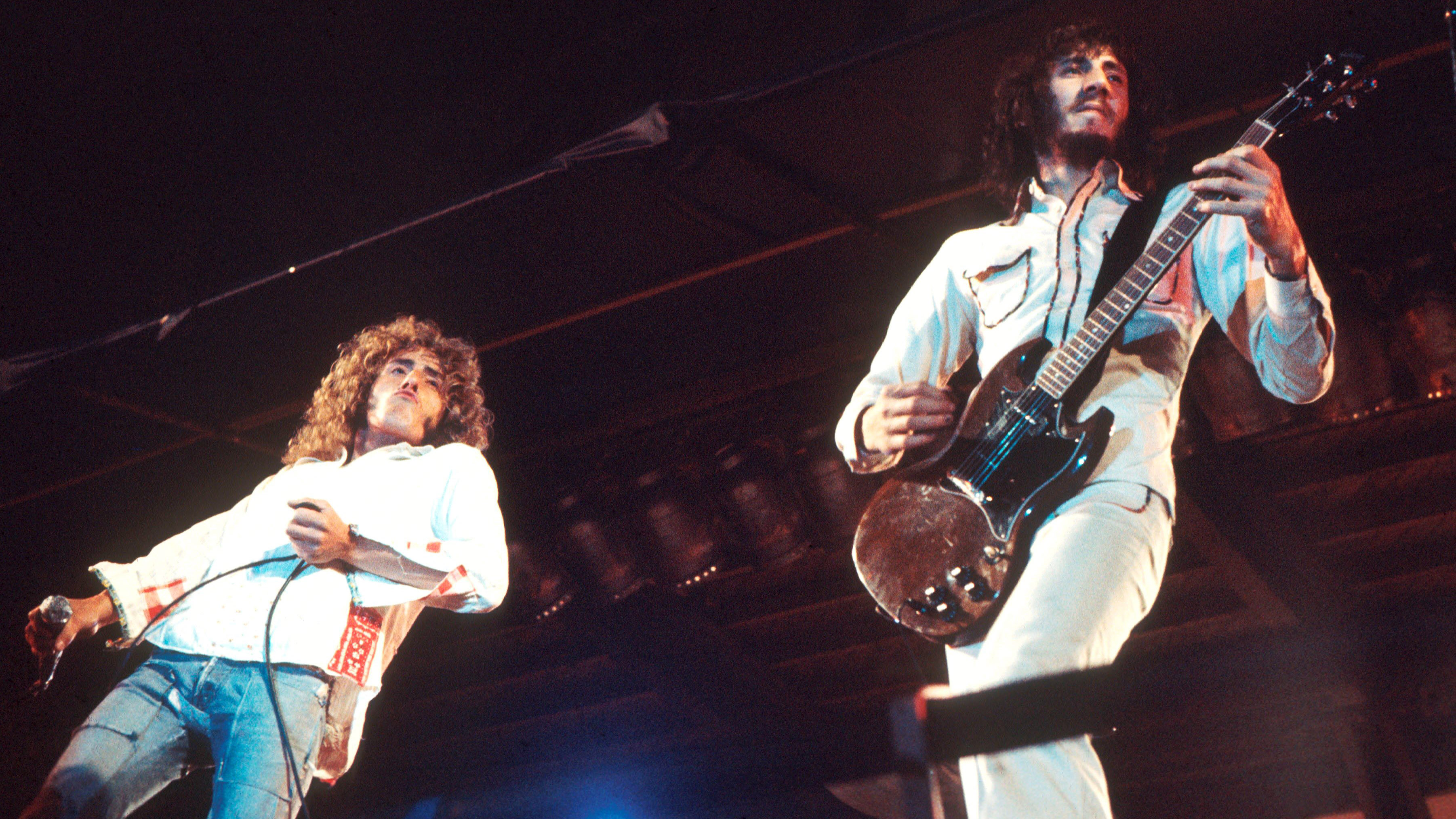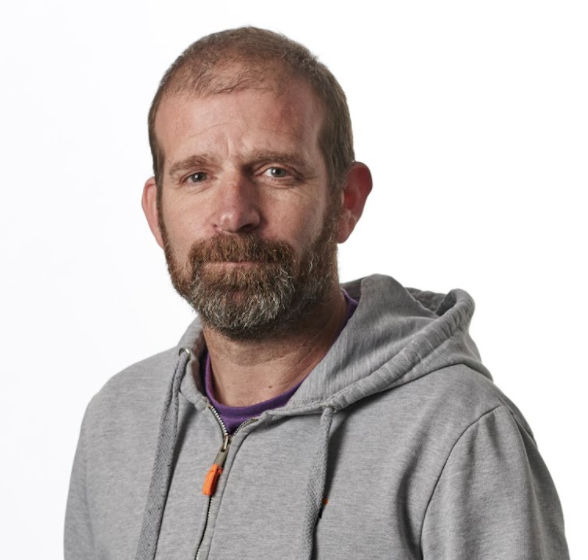Pete Townshend talks Clapton and more: "I remember Leslie West saying to me, ‘I prefer your licks to Eric’s. He seems to be playing things that he’s learned, that he’s picked up from other blues players’"
Who legend goes on record in extensive magazine interview

As a younger man blazing a high-volume trail in '60s and '70s rock, Pete Townshend was never short of a feistily held opinion. Now, well established in the elder statesman rock god survivor role, he remains a compelling interviewee.
This week, he's gone on record to MusicRadar's sister mag Guitarist covering a lot of ground.
I can do two days of practice and learn some really flashy runs if I want to
Pete Townshend

Amongst other juicy tidbits, the legendary The Who guitarist reflects on stalled concept rock opera, Lifehouse, which foresaw a global population in thrall to virtual reality suits and digital content (ahem); his accidental pioneering of Dolby recording tech ("It wasn’t innovation, it was just good luck - I knew Ray Dolby"); the making of classic album Who's Next; and how playing with Keith Moon made him a better rhythm player.
He also muses on his personal relationship with the guitar, of course, emphasising the pride he takes on musicality and originality over chops. Not that he can't do the chopping, of course...
“What I’m happy about," he tells Guitarist, "is that I can do two days of practice and learn some really flashy runs if I want to, though I’m still stuck with the old order, which is trying to make sure that I don’t let my fingers play a series of clichés.
I think one of the things that all guitar players of today are intimidated by is these young guys on Instagram that shred to hell and back - or to heaven and back - who started when they were six.
Pet Townshend
"I remember Leslie West saying to me about Eric Clapton, ‘I prefer your licks, Pete, to Eric’s, because Eric seems to be playing things that he’s learned, that he’s picked up from other blues players.’ And I think that is a fair comparison, although I have seen Eric play live, where he really goes sky-high.
"I think one of the things that all guitar players of today are intimidated by is these young guys on Instagram that shred to hell and back, or to heaven and back, I should say, who started when they were six.
Want all the hottest music and gear news, reviews, deals, features and more, direct to your inbox? Sign up here.
"But we are just our fingers. So The Who have just done a tour of the UK, and I don’t expect people to go on YouTube and get their minds blown, but I do think that some of the playing, some of the solos, some of the chordwork, some of the surprises, some of the avoiding tricks and being willing to take risks is really what I still feel the guitar is great for.”
Elsewhere, the renowned windmiller also details his long history with synths, a relationship that began with Who's Next.
“It gave us this extra harmonic and musical implementation because we were just a three-piece band,” Townshend says. “We didn’t even have a keyboard player. So it enriched our sound. And it was very, very exciting.”
“Chris Thomas was assigned to help George Harrison figure out how to use the damn thing.”
Specifically, he fondly recalls his "first little EMS box... I thought, ‘I can play flutes, I can play clarinets, I can play trumpets!’ They’re funny little noises.
"But I wasn’t thinking about East Coast type [or] Don Buchla, mad electronic music, or even the electronic music that I’d been listening to by people like Malcolm Cecil and Morton Subotnick and people like that. Or Terry Riley, which was astral, ecstatic, uplifting music. Or Subotnick, which was interesting and sometimes rhythmic. Instead, I discovered that these little machines allowed me to experiment with melody."
We highly recommend you track the full interview down and absorb it at your leisure. You can grab an issue of Guitarist here.
• Who's Next and Lifehouse are available as a super-deluze 10CD joint reissue blowout now. Learn about that and other less extensive formats at thewho.com.

I'm lucky enough to be MusicRadar's Editor-in-chief while being, by some considerable distance, the least proficient musician on the editorial team. An undeniably ropey but occasionally enthusiastic drummer, I've worked on the world's greatest music making website in one capacity or another since its launch in 2007. I hope you enjoy the site - we do.